'Intellectuals and Power': conversation between Foucault and Deleuze

‘Intellectuals and Power’ was a casual conversation between two celebrated French philosophers Michel Foucault (1926-1984) and Gilles Deleuze (1925-1995). It was recorded on 4th March 1972 and was then published in the 49th issue of L’ARC, an issue dedicated to Gilles Deleuze. This casual but significant discussion by two seminal poststructuralists eventually became a part of Foucault’s book ‘In Language, Counter-Memory, Practice: Selected Essays and Interviews’, edited by D.F Bouchard. It was to this conversation that the seminal postcolonial critic Gayatri Chakravorty Spivak responded in her groundbreaking essay ‘Can the Subaltern Speak?’. The main topic of discussion in this conversation was about the place of theory and practice within large scale social movements such as workers’ struggle.
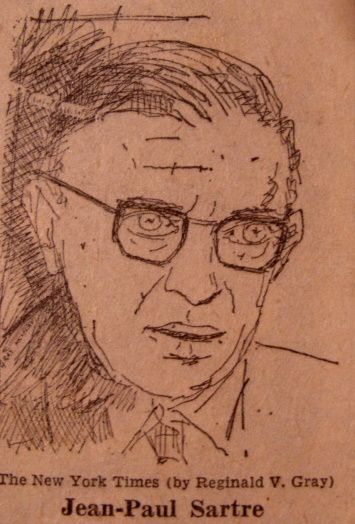
Michel Foucault begins the candid conversation by recalling the remarks of a Maoist that immensely surprised him. A Maoist had once told Foucault how he could understand why he (Foucault) and Jean Paul Sartre were at their side. The Maoist could understand Sartre’s aims and reasons to be involved in politics, and was also aware about Foucault’s involvement with the issues of confinement. However, he could never understand Deleuze’s position. Foucault tells Deleuze how the Maoist saw the latter as an ‘enigma’. Foucault tells Deleuze that he was taken aback by this obscurity around him (Deleuze) as he clearly knows where he (Deleuze) stands.
To this Deleuze says that his position might appear to be an enigma because he along with Félix Guattari have worked on challenging the distinction between theory and practice. Maybe it is because they are beginning to see the connection between theory and action with a new angle. Maoists have seen theory and practice as two distinct elements. It is believed that theory is something that is discussed in academics and cafes while practice is something that occurs on the street and in the world. It is usually believed that action is an application, effect, and consequence of theory. In other cases, action has also been seen as something that inspired and caused the development of theory and its future forms. Deleuze says that in any case, this separation between theory and practice totalizes both, and this is why he and Guattari attempt to challenge this segregation between theory and practice. They ideate that both theory and practice affect each other and are interconnected. Their relation is that of a constant give and take. There are instances when people’s actions in real life form theories. On the other hand, there are occasions when our actions and practices are molded by theory. For instance, the severe addiction to social media and online presence among most people will contribute in the development of certain aspects of the cultural and economic theories. Similarly, the significantly detrimental actions of people on the environment have contributed to the development of ecocriticism. At the same time, theory also informs and impacts our practice. For example, the development of post-colonial theory has educated the world about oppression and racism and has made people more aware and sensitive about them. Thus, theory and practice both enrich each other.
For Deleuze,
“Practice is a set of relays from one theoretical point to another, and theory is a relay from one practice to another.”
Deleuze remarks that every theory needs practice and vice versa. This renders both theory and its practice almost inseparable from each other. Any social movement at any point of time comprises multiple theories and practices feeding each other. Deleuze then gives the example of Foucault’s works.
Michel Foucault in his works like ‘Madness and Civilization: A History of Insanity in the Age of Reason’ (1964) and ‘Discipline and Punish: The Birth of the Prison’(1975), very articulately talked about people who are confined in prisons or are institutionalized in mental hospitals. He highlights through these works the need for confined patients and prisoners to speak for themselves rather than to be represented by an intellectual on their behalf. Deleuze points out that Foucault’s works were not applications to his theory. His act of ideating the necessity of confined people to represent themselves was neither a praxis nor the work of an intellectual attempting to speak for the confined and hoping for reform or change. Instead, it is a complex and interconnected amalgamation of both theories and practice. Deleuze further says that he and Guattari have moved beyond the traditional role of an intellectual or a theorist who represents oppressed or marginalized people. The marginalized and the oppressed cannot be represented by any union or party that might claim to entirely think for them, and voice for them. They do not believe in the fixed, stable and totalised opinions. There always exists a multiplicity even within an intellectual who attempts to represent the workers’ struggle. Deleuze emphasizes how we are all “groupuscules".
Groupuscule is a concept associated with Félix Guattari and Gilles Deleuze in their works such as ‘A Thousand Plateaus: Capitalism and Schizophrenia’. This concept challenges the conventional notions of stable and fixed identities. Social groups don't have absolute inclinations. Instead, they are fluid. Groupuscules are people or elements that assemble temporarily due to shared desires, interests or goals. Groupuscule can self-organize and improvise and are often found in political movements, subcultures, and informal gatherings. Through their concept of groupuscule, Guattari and Deleuze attempt to emphasize on the multiplicity and fluidity of social formation.
Deleuze finally says
“Representation no longer exists; there’s only action -- theoretical action and practical action which serve as relays and from networks”
In response, Foucault talks about the role of intellectuals. For him the intellectuals were politically involved due to two main reasons: firstly because of their position in the bourgeois society with its capitalist system of production and ideologies that accompany it. Secondly, intellectual discourse unearths political relationships and truth that are not otherwise visible. The intellectual was either cursed and suffered backlash and criticism or was a socialist who aimed and worked for a more equal society. However, after the Paris Commune and 1940, the intellectual was criticized and rejected at the very times when the truth began to be exposed. The intellectual was both ostracized and a revolutionary. During that time, the intellectuals revealed truths that were yet to be seen by the people. They spoke for those who could not speak.
Foucault further tells Deleuze that after the events of May in 1968, intellectuals have learnt that the masses can represent and speak for themselves. They are clearly aware about ground realities even better than the intellectuals and know what is going on. The marginalized or the oppressed are capable of conveying their point of view. The problem is that power forbids, and renders the discourse of the marginals and the oppressed invalid. An intellectual too is a part of this system of power. Moreover, this idea that an intellectual is the responsible voice of consciousness and discourse also perpetuates his position in the system of power. For Foucault, the role of intellectuals has changed. They should no longer situate themselves ahead and aside to reveal the hidden truth. Instead, they must struggle against all forms of power that make them tools in the fields of knowledge, truth, discourse, and consciousness. Theory does not exist exclusively to cater to practice. It is practice itself. However, it is localized and regional. Foucault agrees with Deleuze that it is not totalizing. Theory struggles against power and reveals and undermines it wherever and whenever it is least visible. Theory does not awaken your consciousness so that you begin to resist and struggle against power. It is the action of sapping and taking power.
Deleuze completely agrees with Foucault. For him “theory is exactly like a box of tools.’’ Theory must be functional and useful. We must constantly develop new theories rather than revising the existing ones. If one theory is unsuitable, we must find or develop a new one.
He says that the role of theory should not be totalizing-- there are no homogenous people having homogenous oppressors. In Fact we must take into account multiple kinds of oppressions and various kinds of struggles people undergo, followed by various kinds of resistance. Contrary to power, theory is not totalizing and it opposes power. Deleuze also tells Foucault that he finds the concept of reform extremely hypocritical and nonsensical. Reform refers to the improvement of an existing system, theory or process. For Deleuze, theory is not reformed or revised. New theories are eventually developed. Reforms are proposed only by those who think of themselves as representatives of the masses. There are also occasions when intellectuals demand for a reform because of the persistent demands and complaints by the oppressed. However such actions are not reform but rather an act of revolution that challenges totalizing power. For example, in schools, fulfilling even the simplest of the demands of children can potentially disrupt the entire educational system. Deleuze emphasizes that our entire system is extremely fragile and therefore completely devoid of tolerance. Since our social system is fragile, it is repressive in all aspects.
Deleuze then credits Foucault for being the first to impart fundamental information about how representing the oppressed or marginals and speaking for them strips them off their dignity.
Both Deleuze and Foucault agree that representation today is obsolete and that the marginalized and oppressed can speak way more effectively for themselves.
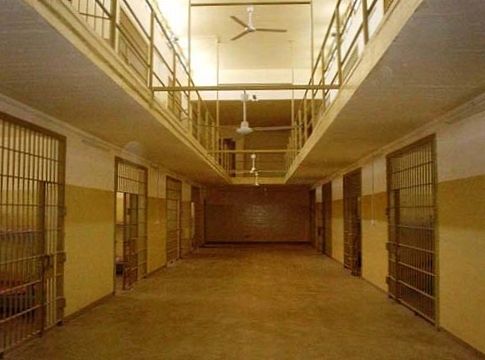
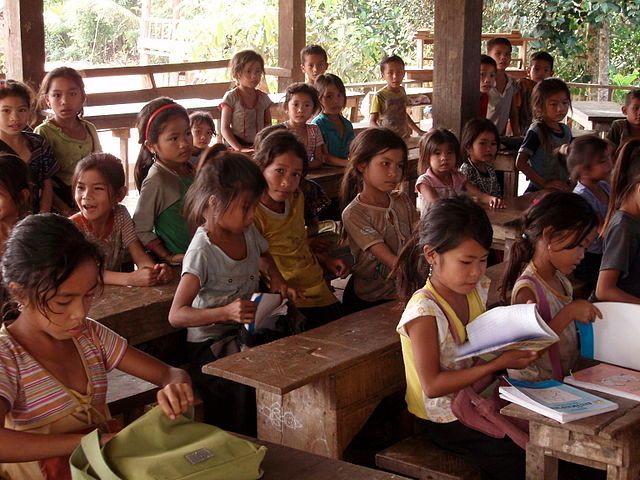
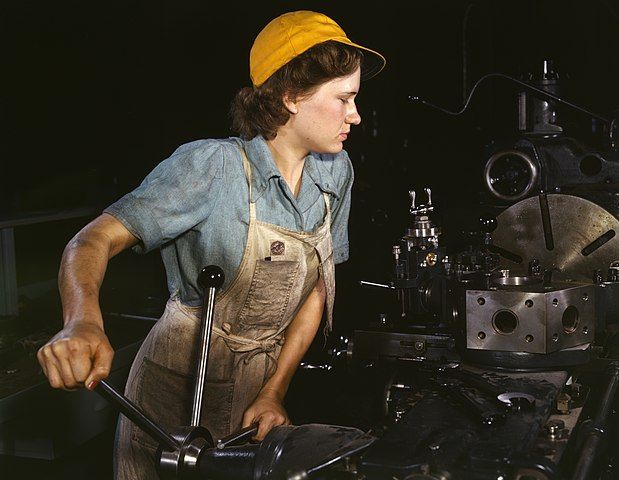
Foucault then gives an elaborate example of how power operates in prisons. He highlights that prisoners’ have talked about their theory of prison, penal system and justice extremely articulately. This is the theory that is actually significant and matters. Prisoners’ theory is a discourse that is directly against power. It is not a theory about delinquency but is rather a counter-discourse of delinquents. The discourse of the prisoners is extremely localized and yet it disturbs and interests the masses. What is interesting to Foucault is that despite the way prisoners are characterized as being totally marginal to the normal world, they are completely intelligible to the outside world. This makes it evident that the prisoners and mentally ill people are not different or cut-off from the people living outside the mental asylums and prisons. They shared the same intensified world with others, a microcosm of the power structure that everybody inhabits. Power in the prison or mental asylums is at its most raw, stripped down form. People in these institutions are stripped off of their identities, are fed sub-par food, and are severely tortured. Everything that happens outside of the prisons and mental institutions is just at a subtler level. Power in the world outside the prisons and mental institutions is more diffused because it needs to control more people. In prisons, power takes its most unadulterated and crude form.
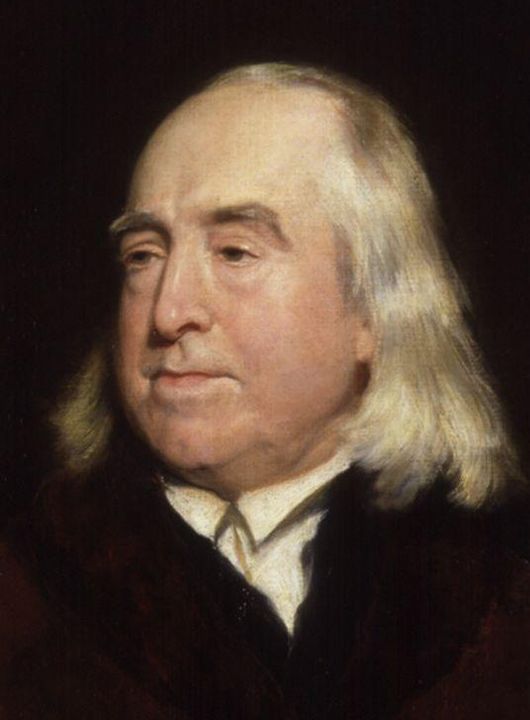
Deleuze uses this idea by Foucault to point out that schools are similar to prisons. The prisoners too are treated like they are children, made to comply. Children too are treated as prisoners, being held in classes, and controlled and forced to behave a certain way by teachers. Thus, schools are also like prisons. It is in schools where children are taught to be compliant and obedient and shaped into docile future subjects. The same can be said about workers in a factory. Through the division of labor, they are deprived of their creativity and are made to execute one particular set of mundane tasks throughout their working tenure. For example, if a worker in a jeans manufacturing factory also knows how to embroider, or create a shirt, he will only be forced to manufacture jeans. Deleuze also gives the example of Jeremy Bentham who proposed prison reforms. However in the name of reform, Bentham developed a circular system where the renovated prison became a model for schools as well as factories. Bentham’s attempt of representation does little for prisoners, children or factory workers. However, when the oppressed and marginalized begin to represent themselves, it happens on another level.
Foucault says that it is not surprising that all popular revolts and resistances to power are not always motivated by some perfect vision of the world. People don’t hate judges, prisons because power is detrimental to them. They don't necessarily fight for the ideal notion of justice. Sometimes they just want to revolt because power is a determining system that persistently tells the world how to act and how to be. Opposing this power leads to some sort of a release, a sense of accomplishment. People resist and revolt against the judicial system not because they want a more efficient one.
Deleuze says that power is extremely totalizing -- the racist repression against immigrants, repression of factory workers, prisoners, children, and repression of youth. He recalls what Foucault had predicted long time back: “the reinforcement of all the structures of confinement.”
We are in an age where power is global and diffused, local resistances assume an extremely radical opposition to these totalizing regimes. If one attempts to substitute one totalizing regime with another, all that is ever going to be possible is shifting of power from one hand or group to the other. This does not help when we are trying to create a more equal world. Since we are unable to understand how power works, we are also unable to recognize its value within a local movement. We are generally just obsessed with characterizing power as a monolithic entity which can be easily tumbled. This is exactly what is problematic according to Deleuze. For him reality is not what is represented by the French Communist Party or the French Trade Union. Reality is in the events that actually happen in prisons, factories, schools, barracks on an everyday basis. These actions and events are drastically different from what is imparted by newspapers.
Foucault says that the inability to find appropriate and effective forms of struggle stems from the fact that we still do not know what power is. He says that just like we were oblivious about the concept of exploitation until the 19th century, maybe we are yet to know what power really is. Maybe theories developed by both Marx and Freud dont explain the concept of power as completely as we think. Power is an enigma that is both visible and invisible, and goes beyond the conventional theory of State and State apparatuses. Concepts related to power such as ‘dominate’, ‘govern’, ‘manage’, etc are extremely abstract concepts that need more analysis. Even though we are never able to pinpoint who exactly has power, we always know who does not possess it. Foucault then refers to Gilles Deleuze’s works like ‘Nietzsche and Philosophy’ , and ‘Anti-Oedipus: Capitalism and Schizophrenia’ (with Guattari) and how they use conventional themes of meaning, signifier, signified, etc to ask questions about power. Foucault points out that every kind of struggle is always against some source of power. For instance a boss, some manager, a security guard, a warden, a teacher, etc. He further says that to begin to accuse, to localize power and force the institutionalized sources of information to listen, is the beginning of new struggles against current forms of power. The theory or discourse of prisoners is called struggle because they temporarily ‘take’ the power to speak about the prison conditions that are otherwise ruled by prison administrators.
For Foucault, the struggle is against the secret, not the unconscious. It is a secret which is harder to know than the unconscious.
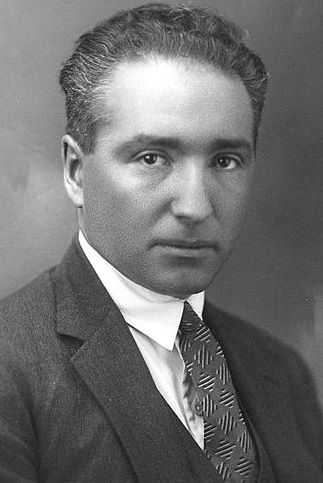
Gilles Deleuze further discusses the diffused nature of power. He says that people who are oppressed or otherwise protest against power are also the ones who aim for it or desire for it , even though it is temporary. Deleuze points out that interest is always in sync with desire, it is wherever the desire places it. Thus, the desire for power is not against one’s interest, it is more diffuse and deeper than interest. He quotes social theorist Wilhelm Reich --“No, the masses were not fooled, they wanted fascism at a particular moment!”. At some moment or the other, masses support and desire authoritarian regimes due to underlying social and psychological factors. Their class interest lies not entirely with their class, but with one that has more power. This is exactly why the parties and unions that are supposed to resist and revolt against power are inclined towards reforms rather than revolutions. Deleuze says that power is so diffused that there is little difference between power exercised by a cop or that wielded by a politician.
Foucault agrees with Deleuze and says that the concepts of power, desire and interest are more complicated than they had anticipated. It is strange and inexplicable how power is always exercised at the expense of the masses and yet they want power to be wielded on them.
Deleuze asks about how they would be able to view the networks of revolutionary movements within a country or from one nation to another.
Foucault replies that maybe we don't need to make the name prescriptive but to acknowledge that there are these very broad forms of oppression (for example capitalism) that exploit people for their labor and this is common across different communities, nations and different people. As a result, the types of resistance and the alternatives that they might offer are going to be significantly different. Moreover, out of these different kinds of resistance might come out various outcomes. We must respect that and not expect a possible end goal that is uniform for all resistance. We must acknowledge that there are oppressions that operate against many different people and they can be acknowledged as such. However, the actual ways to oppose it will be radically different depending upon community to community. All these different kinds of struggles are a part of the revolution if they do not settle for a reform, compromise or with a change in leadership. Foucault states that
“the generality of the struggle specifically derives from the system of power itself, from all the forms in which power is exercised and applied.”
Deleuze says that we cannot access power without realizing how diffused and prevalent it is.
He closes the conversation by saying that all revolutionary struggles are linked to the struggles of the working class.
References
Foucault, Michel, et al. Language, Counter-Memory, Practice : Selected Essays and Interviews. Ithaca, Ny Cornell Univ. Press [20]12, 1977.
Gilles Deleuze and Michel Foucault’s “Intellectuals and Power.” (n.d.). Www.youtube.com. Retrieved June 13, 2023, from https://www.youtube.com/watch?v=5Xf6JJDyUWE&ab_channel=Theory%26Philosophy
